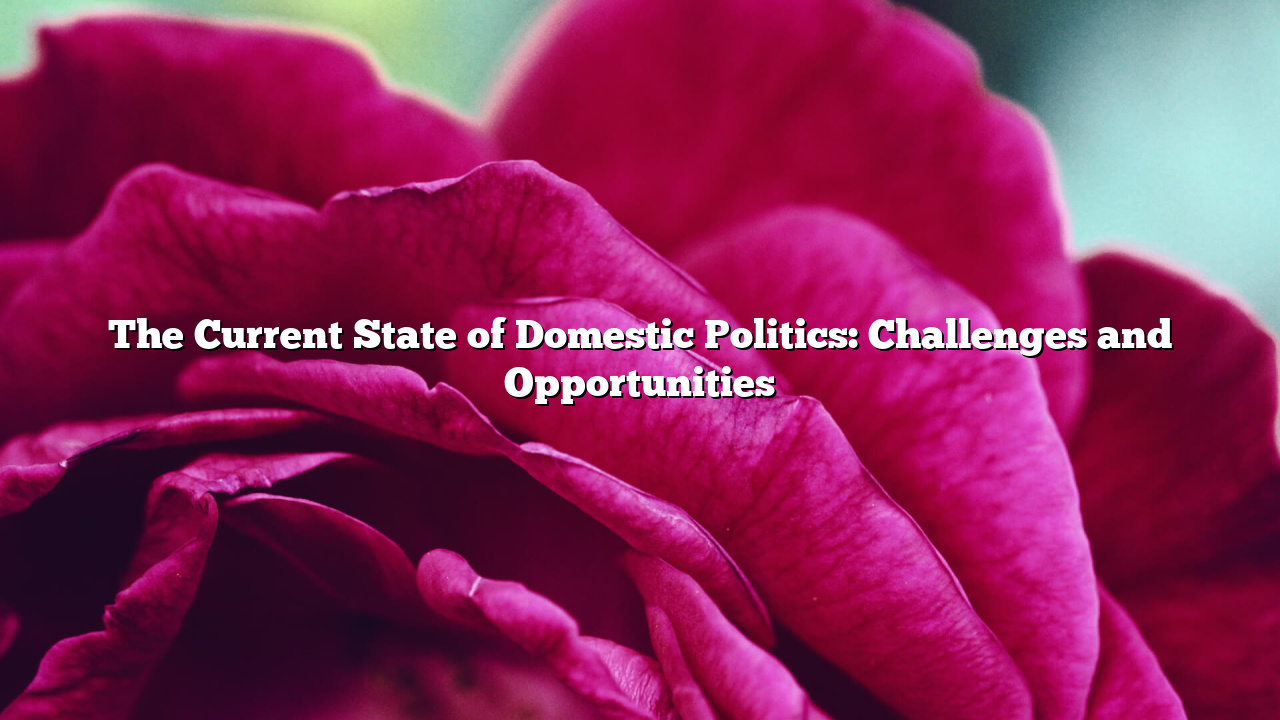Domestic politics in many countries today are defined by rapid change, heightened citizen expectations, and increasing polarization. As governments face new economic, social, and environmental pressures, leaders are being pushed to adapt their policies and approach in order to keep up with the Pattimura4d demands of their constituents. While several challenges threaten social cohesion and democratic effectiveness, there are also meaningful opportunities to strengthen institutions and rebuild public trust.
One of the most significant challenges in current domestic politics is the erosion of trust in government institutions. In many nations, citizens feel that politicians are disconnected from the real needs of society and overly influenced by special interests. Social media and rapid news cycles contribute to this perception by amplifying sensational or negative narratives. As a result, public confidence in legislative bodies, political parties, and even judicial systems has declined noticeably in the past decade.
Another major issue is political polarization. Ideological divisions between parties have intensified, making it difficult to develop and implement bipartisan policies. These divisions not only slow the decision-making process but also create deep social rifts among citizens. People increasingly live in information bubbles that reinforce their own views and demonize opposing perspectives, which can ultimately threaten national unity.
Despite these difficulties, domestic politics also show positive signs that democratic systems remain dynamic and resilient. Specifically, the rise of youth participation in elections and civic engagement reveals a growing awareness of the importance of political accountability. Younger generations are more willing to speak out about topics such as corruption, transparency, and social justice. Their participation can revitalize political discussions and push governments to adopt more inclusive and progressive policies.
In addition, recent improvements in digital governance offer potential solutions to long-standing problems. Many governments have begun implementing online platforms to increase transparency, improve service delivery, and allow for more direct interaction with citizens. Through digital tools, citizens can monitor public spending, participate in public consultations, and quickly report cases of misconduct. When used responsibly, these technologies may strengthen democratic oversight and improve the efficiency of public administration.
Economic reform has also become a central topic in domestic political debates. With inflation and unemployment affecting large portions of the population, governments are under growing pressure to develop policies that stimulate economic growth while protecting vulnerable groups. In many cases, political leaders are introducing reforms to support small and medium-sized enterprises (SMEs), build more resilient supply chains, and promote sustainable development. These policies, if implemented effectively, can help reduce inequality and improve social stability.
Looking ahead, the main challenge for domestic politics will be finding the right balance between strong leadership and broad-based participation. Governments must respond quickly to crises while maintaining the legitimacy that comes from democratic consultation. This requires leaders to listen carefully to diverse voices and promote inclusive decision-making processes. At the same time, citizens need to remain engaged and hold their governments accountable through peaceful and constructive means.
In conclusion, domestic politics face undeniable difficulties in the modern era, including declining trust and rising divisions. However, emerging trends such as youth engagement, digital innovation, and renewed attention to economic reform suggest that there is also room for optimism. By addressing citizens’ concerns and improving institutional transparency, governments have the opportunity to reinforce democratic values and build a more stable and promising future.
30/30
Ask ChatGPT
